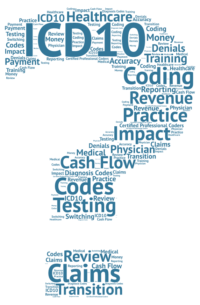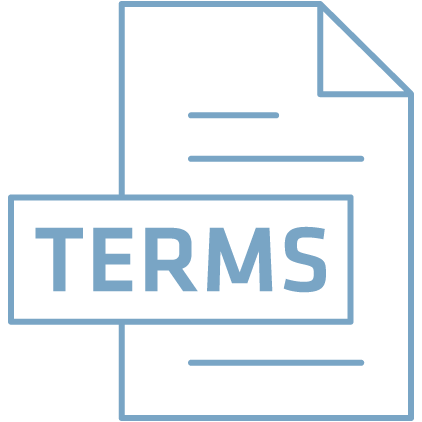Dental CPT Codes
Dental CPT codes are often referred to as Level I codes and used to report procedures to medical payers for dental works. This code set is maintained by the American Medical Association.
The American Dental Association (ADA) has a set of codes, known as the Current Dental Terminology (CDT) codes, which are used to accurately describe dental procedures, services, and treatments for insurance and reimbursement purposes. These codes are updated and published annually by the ADA and are widely used in the dental industry. Some of the most commonly used codes in the CDT include D0120 for a comprehensive oral evaluation, D1110 for a prophylaxis (cleaning), D0210 for bitewing x-rays, and D9972 for teledentistry supervision and/or interpretation services. It's important for dentists and dental office staff to be familiar with and use the correct codes to ensure accurate billing and payment.
Submitting Dental Claim FormIt is important to follow the dental claim form instructions exactly when submitting a medical claim. Common claim form errors include, but are not limited to, the use of punctuation, the absence of a description when reporting an unlisted CPT code, and use of the appropriate modifier or qualifier, when required. So we try to list dental CPT codes with one by one with descriptions because It is important for dentists to invest in staff training and resources to ensure accurate completion of any claim form to all third parties.
Dental Code Conversion
Convert Dental codes to new ICD-10 Medical codes, use cpt codes on your medical billing form with cross coding.- D7241
- D4249
- D2945
- D6548
- D7951
- D4266
- D7820
- D4278
- D7899
- D7251
- D7111
- D5283
- D8090
- D6115
- D6114
- D7945
- D7294
- D6104
- D7955
- D0180
- D4263
- D9612
- D9219
- D7310
- D7952
- D9613
- D7550
- D7999
- D0150
- D9248
- D0384
- D0382
- D0381
- D0368
- D0366
- D0365
- D0364
- D0363
- D7260
- D9420
- D7911
- D5140
- D5130
- D7130
- D7140
- D6085
- D6066
- D5982
- D2949
- D1204
- D9910
- D2750
- D9610
- D4320
- D7270
- D0380
- D7880
- D4265
- D7953
- D7450
- D0422
- D7921
- D7285
- D5820
- D0230
- D7950
- D4277
- D0460
- D4321
- D9430
- D9310
- D7411
- D9944
- D6740
- D6245
- D5214
- D6011
- D7410
- D7210
- D7110
- D7220
- D7230
- D7240
- D9243
- D9239
- D5821
- D9110
- D0330
- D9230
- D0350
- D7960
- D1999
- D6242
- D6752
- D9223
- D9222
- D7286
- D2335
- D0383
- D0120
- D0367
- D6056
- D2330
- D2332
- D2331
- D2962
- D0140
- D0470
- D0220
- D6095
- D6058
- D6999
- D9950
- D2999
- D6199
- D6057
- D6190
- D6051
- D2799
- D6010
- D1110
- D3999
- D3355
- D9440
- D7274
- D9974
- D3310
- D0000
- D2740
- D2950

ICD-10 Code Usage
Some commercial payers, based on the plan design, may require ICD-10 diagnostic codes in order to adjudicate the claim correctly.
Payers need to define when and under what circumstances, providers will need to submit diagnosis codes.
Common interpretation of when provider diagnosis codes will be required for submission is when patients have enhanced benefit coverage for dental services due to oral health risks associated with certain systemic health conditions.
Common ICD-10 Codes For Dentists
K08.21-K08.26 - Atrophy
K08.0 - Exfoliation of Teeth Due to Systemic Causes
K05.32 - Chronic Periodontitis, Generalized
K05.00 - Acute Gingivitis
K05.10 - Chronic Gingivitis
K06.01 - Gingival Recession, Localized
K06.02 - Gingival Recession, Generalized
-- K12.2 - Cellulitis and Abscess of Mouth
K04.6 - K04.7 - Periapical Abscess
K00.6 - Disturbances in Tooth Eruption
K01.1 - Impacted Teeth
M26.31 - Crowding of Fully Erupted Teeth
K06.3 - Horizontal Alveolar Bone Loss
Anatomy Of An ICD-10 Code
| 1 | 2 | 3 | 4 | 5 | 6 | 7 |
| Section | Body System | Root Operation | Body Part | Approach | Device | Qualifier |
- Section relates to type of procedure
- Body system refer to general body system
- Root operation specifies objective of procedure
- Body part refers to specific part of body system on which procedure is being performed
- Approach is the technique used to reach the site of the procedure
- Device specifies devices that remain after procedure is completed
- Qualifier provides additional information about procedure
CDT Code Range For Dental Terminology
| Diagnostic | D0100-D0999 |
| Preventive | D1000-D1999 |
| Restorative | D2000-D2999 |
| Endodontics | D3000-D3999 |
| Periodontics | D4000-D4999 |
| Prosthodontics, Removable | D5000-D5899 |
| Maxillofacial Prosthetics | D5900-D5999 |
| Implant Services | D6000-D6199 |
| Prosthodontics, Fixed | D6200-D6999 |
| Oral & Maxillofacial Surgery | D7000-D7999 |
| Orthodontics | D8000-D8999 |
| Adjunctive General Services | D9000-D9999 |
Most Expensive Dental Procedures With CDT Codes
Dental Bridges: Start at $3000
You may require dental bridges if you are experiencing tooth loss. The cost for dental bridges can vary and depends on how many teeth are involved in your treatment plan.
CDT Codes:D0232
D2201
D2300
D2301
D3310
Dental Implants: $1000 - $2000
Dental implants are fixed in place and a permanent tooth replacement option. Fashioned from titanium, these artificial tooth roots are surgically inserted into your jawbone and then hold a replacement tooth, or dental crown.
CDT Codes:D4420
D4421
D4422
D4423
Dental Crown/Abutment: $2500 - $4000
The cost varies widely for dental implants and crowns/abutments as the price is dependent on the type of implant, graphing, and restorative materials used in your unique case.
CDT Codes:D0095
D0099
Dental Crowns, Inlays or Onlays: $1000 - $2500
If you have a dental implant, a broken tooth, a severely decayed tooth, or other dental restoration options such as tooth fillings aren't possible, your dentist may recommend a dental crown, inlay or onlay.
CDT Codes:D5001
D5003
D5005
D9900
Clear Correct Cost: $3500 - $6000
Clear Correct clear braces are a wonderful option for patients who want to straighten their teeth in an inconspicuous manner. Clear Correct treatment uses a series of custom-fitted aligner trays to straighten upper and lower teeth just like regular braces - but without metal brackets or wires.
CDT Codes:D0132
D0133
D0134
D0135
D0136
D0137
D0138
D0139
Dentist Problems In Billing Forms With Patients
Common questions & answers with patients insurance collections and dental benefits plans.
What can I do if a patient refuses to pay for what insurance won't cover ?
When the parents are divorced, who should pay for a child's treatment ?
Is it reasonable to check my patient's credit history before I start treatment ?
Can I charge interest for late payments ? If I do so, am I required to notify patients before I start charging interest ?
What notices am I legally required to provide patients to whom I offer third-party financing ?
What if the patient doesn't return for completion of the treatment and the dental plan has already paid for it ?
Can I offer a discount to my patients who pay in full prior to treatment ?
Are there legal problems in giving discounts to family, staff or colleagues ?
If a patient is behind on payments, can I withhold records or stop treatment ?
How do I collect an unpaid balance if the patient is in bankruptcy ?
A patient is owed a refund from overpayment, but I cannot locate the patient to send the refund. What do I do with the funds ?
What do I need to know about working with a collection agency ?
What are the federal and state laws that apply to my collection efforts ?
Is there a statute of limitations for collecting debt ?
Is small claims court an option for collecting unpaid bills ?
What should I do if a patient isnít satisfied with the quality of treatment and wants a refund ?
Should I use the fee allowed by the plan for each procedure or my own usual, customary and reasonable (UCR) fee ?
Can I waive patient copays ?
Can I establish a discount program in my practice for patients, and what are the legal requirements ?
How soon must I submit a claim in order for it to be considered valid ?
How soon must a dental plan or insurer pay submitted claims ?
What options do I have if I disagree with the insurance plan's payment decision ?
A dental plan is auditing my practice - what does this mean ?
Does an auditor have the authority to access patient records ?
How can a dental office prepare for an announced audit ?
What if the office fails the dental audit?
Are plans required to pay for in-hospital dental treatment ?
Does obtaining a prior authorization from a patient's plan obligate the plan to pay for that treatment ?
Can lab costs be charged on a claim separately from a procedure ?
Must refund demands from dental plans always be paid ?
What should I be aware of when considering contracting with a plan to join its provider network ?
Can I balance bill a Denti-Cal beneficiary for the portion of my bill that wasn't paid by Denti-Cal ?
May I charge a Denti-Cal patient for an alternative procedure that is not a covered benefit of Denti-Cal ?
Must an associate dentist in my office be separately enrolled as a Denti-Cal provider if I am enrolled as a provider ?
What is the best way to obtain information about the treatment, provider participation and payment policies of the Denti-Cal program ?
How and when your practice verifies patient insurance coverage ?
What medical plans will pay for in dental operations ?
Dental Insurance Terms

View all dental terminalogy in dental billing claim form. Know how to write it.
Importance Of CPT Dental Code Usage
It is critical that the billing staff continually update their knowledge of billing codes, especially now that HIPAA regulations have been implemented, requiring all offices and insurance companies to use only current Dental CPT codes in filing and processing claims electronically. It is also imperative, unless an extension was filed, that these codes were incorporated into the billing protocol for all claims.
